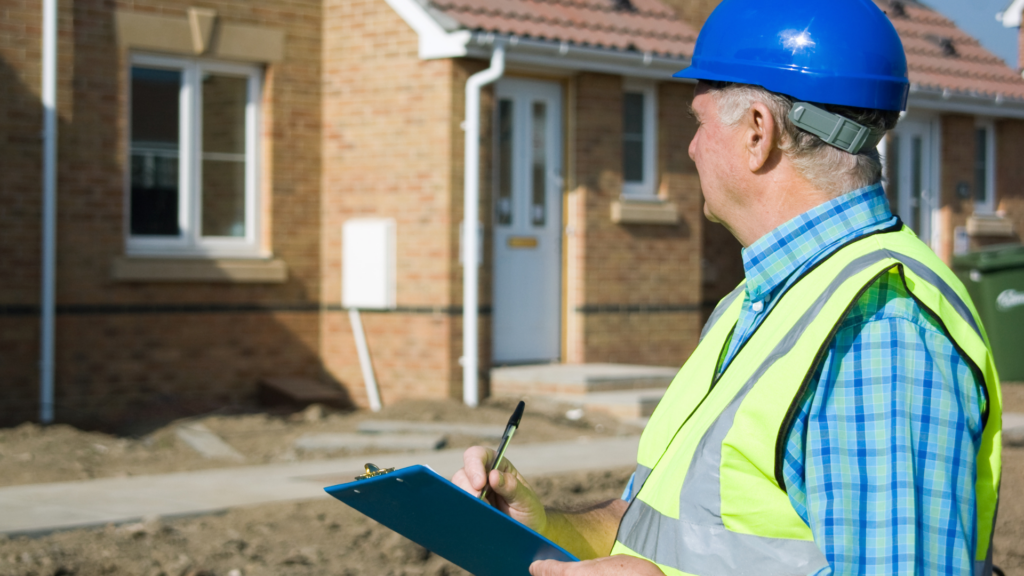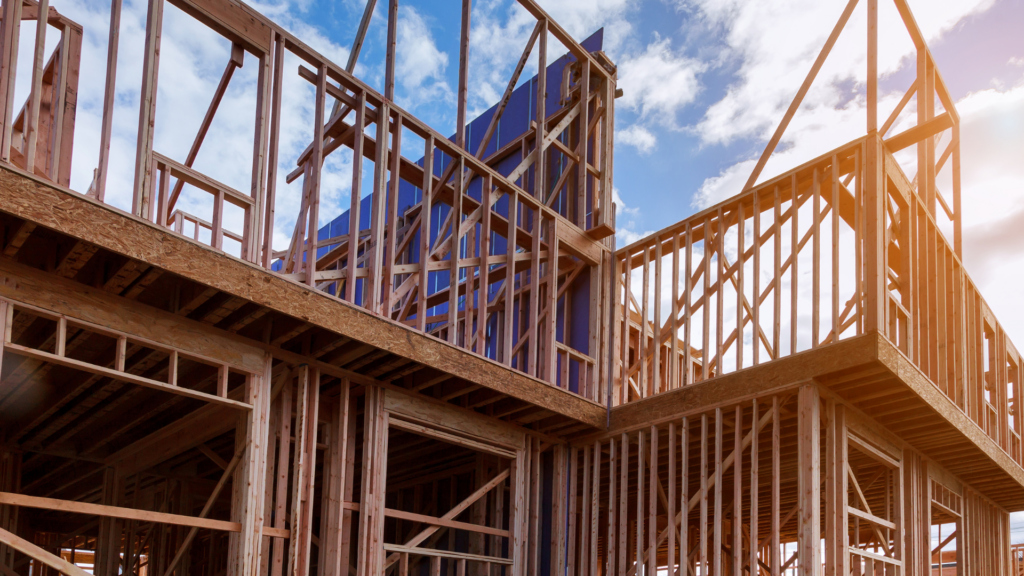- Can You Get a Mortgage on a House with Asbestos?
- Why Is It Harder to Get a Mortgage on a House with Asbestos?
- What Types of Asbestos Surveys Are There?
- Can Removing Asbestos Help Get a Mortgage Approved?
- Mortgage Lendersâ Criteria When Buying a House with Asbestos
- Can You Get a Buy-to-Let Mortgage on a House with Asbestos?
- What Are the Legal Requirements Regarding Asbestos?
- How A Mortgage Broker Helps You Buy a House with Asbestos
- What Should You Do if Your Mortgage Application Was Rejected Because of Asbestos?
- Is It Safe to Buy a House with Asbestos Roof Tiles?
- Should You Walk Away from a House with Asbestos?
- Key Takeaways
- The Bottom Line
Mortgages and Asbestos: What You Need to Know

Buying a house with asbestos isn’t exactly ideal, but it’s more common than you might think—and it doesn’t automatically rule out a mortgage.
Plenty of UK lenders will consider properties with asbestos, but they may have specific requirements. So, if you’ve found the perfect home but it happens to contain asbestos, don’t worry.
Let’s explore what it means for your mortgage and how to navigate the process smoothly.
Can You Get a Mortgage on a House with Asbestos?
The short answer is yes, it is possible to get a mortgage on a property with asbestos. But… it can be a bit more complicated.
Around half of the UK lenders will consider lending on properties that contain asbestos, but each lender has their own specific criteria. The presence of asbestos can impact the property’s value, and lenders worry about the risk if you default on your payments.
After all, they don’t want to be left with a property that’s harder to sell due to costly asbestos removal.
Some lenders may require an asbestos survey to understand the extent of the risk, while others may have conditions about how the asbestos is managed.
This means it’s important to be upfront about the asbestos situation and show that it’s either being managed properly or poses minimal risk.
Working with a knowledgeable mortgage broker can also be incredibly helpful in finding a lender that’s right for your situation.
Why Is It Harder to Get a Mortgage on a House with Asbestos?
The main reason it’s trickier to get a mortgage on a property with asbestos is the potential health risk.
Asbestos was widely used in building materials from the 1960s until it was banned in 1999. If the property was built before 2000, it might contain asbestos.
If asbestos-containing materials are damaged or disturbed, fibres can be released into the air.
When inhaled, these fibres can cause serious health issues, such as lung disease and cancer, which often take decades to develop.
Lenders are cautious because repossessing a property with asbestos can affect its resale value and marketability.
Additionally, removing asbestos is costly, which makes it harder for lenders to recover their investment.
Lenders often request an asbestos survey to assess the condition and location of asbestos materials before approving your mortgage.
The survey results will help determine if the asbestos poses any risks during normal use or planned renovations.
What Types of Asbestos Surveys Are There?
If you’re considering buying a house with asbestos, an asbestos survey is important. There are two types of surveys commonly used:
- Management Survey. This is the standard survey that helps identify asbestos-containing materials and ensures they are in good condition and not likely to be disturbed. It’s ideal if you’re not planning on making any major changes to the property.
- Refurbishment and Demolition Survey. If you’re planning renovations or demolitions, this survey will tell you exactly where asbestos is located and how to remove it safely. It’s more comprehensive and intrusive but necessary for any big projects.
The surveyor will usually take samples of any materials suspected to contain asbestos, and you’ll get a report on the type of asbestos found, its condition, and what your options are.
Can Removing Asbestos Help Get a Mortgage Approved?
If asbestos is standing between you and a mortgage approval, removing it might seem like the obvious solution.
But, asbestos removal can be expensive, costing around £150 per square metre for full removal, or about £25 per square metre for encapsulation (sealing it up to prevent fibres from being released).
It’s wise to factor this into your buying budget, and in some cases, you may be able to negotiate a lower purchase price to account for the cost of asbestos removal.
Just remember—removing asbestos is not a DIY job. It’s essential to hire licensed professionals to handle it safely.
Mortgage Lenders’ Criteria When Buying a House with Asbestos
Here are some common criteria that lenders consider:
- You may need an asbestos survey to assess the type, condition, and location of asbestos in the property. This helps lenders understand the extent of the asbestos and any potential risks.
- Lenders want to be sure the asbestos is contained and not a health risk. If asbestos is in a load-bearing wall or structural component, it may be a red flag for some lenders.
- The property’s age and the condition of the asbestos will be reviewed. Older properties with deteriorating asbestos can be seen as higher risk.
- Some lenders might ask you to contain or remove the asbestos before they approve a mortgage. They may even refuse lending on a property with extensive asbestos if they feel the risk is too high.
- Proof of proper asbestos management, or a plan for ongoing management, might be required. This can include actions like encapsulation (sealing it up) if removal isn’t needed.
Not all lenders will be open to lending on properties with asbestos, so it’s important to work with a broker who knows which lenders are more flexible about these requirements.

Can You Get a Buy-to-Let Mortgage on a House with Asbestos?
Good news if you’re thinking of buying to let: many lenders consider properties with asbestos for buy-to-let mortgages too.
Just like with residential properties, they’ll assess the asbestos situation to ensure it’s not a health hazard or affecting the property’s structural integrity.
As long as the asbestos is contained, and not in a load-bearing wall or deteriorating, buy-to-let mortgage approvals are possible.
What Are the Legal Requirements Regarding Asbestos?
When dealing with asbestos in a residential property, it’s important to understand the relevant laws.
The Control of Asbestos Regulations 2012 is the key piece of legislation in the UK, which lays out requirements to prevent or reduce exposure to asbestos.
For homeowners, this means if asbestos is found, you have a duty to manage it safely.
If you’re employing contractors to carry out any work involving asbestos, they must follow strict safety guidelines.
It’s also worth noting that under The Property Misdescriptions Act 2013, if you’re aware of asbestos in your home, you are legally required to disclose this to potential buyers.
Sellers can’t keep it a secret, so if asbestos is present, it must be declared during the sales process.
How A Mortgage Broker Helps You Buy a House with Asbestos
If you’re worried about buying a house with asbestos, a mortgage broker can help.
A good broker knows which lenders are more likely to approve a mortgage for a property with asbestos. They can also help you find lenders with less strict rules about asbestos.
Some big banks, like Barclays, Nationwide, and HSBC, are okay with lending money for houses with asbestos. But others, like Metro Bank and Pepper Money, might be more picky.
A broker can tell you which lenders are most likely to approve your mortgage, so you don’t waste time applying to the wrong ones.
What Should You Do if Your Mortgage Application Was Rejected Because of Asbestos?
If you’ve had a mortgage application rejected due to asbestos, it’s not the end of the road.
Often, it’s simply a matter of finding a more accommodating lender or addressing the asbestos issue before reapplying.
Work with a specialist broker who understands how to navigate these tricky situations.
Sometimes, managing the asbestos properly or even encapsulating it can be enough to satisfy a more flexible lender.
Is It Safe to Buy a House with Asbestos Roof Tiles?
Asbestos roof tiles are one of the more common places you’ll find asbestos in older properties. The good news is that as long as these roof tiles are intact and not breaking down, they’re generally considered low risk.
Most surveyors and lenders won’t see them as a dealbreaker as long as the asbestos is stable.
However, if you’re planning on doing roof work, be sure to hire professionals who know how to handle asbestos safely—no shortcuts!
Should You Walk Away from a House with Asbestos?
This really depends on your comfort level and budget.
Asbestos isn’t always a dealbreaker, but it does add complexity and potential costs to buying a property.
If the asbestos is well-contained, and you’re not planning any major renovations, it might be perfectly manageable.
However, if removal costs are high or you’re not comfortable with the risks, walking away is also a valid choice.
Either way, make sure you understand the full picture before making your decision.
Key Takeaways
- You can still get a mortgage on a house with asbestos, but lenders may have specific requirements.
- Lenders often require an asbestos survey to check the condition and location of asbestos in the property.
- If planning renovations, you’ll need an in-depth asbestos survey and might have to factor in removal costs.
- Buy-to-let mortgages on properties with asbestos are also possible if the asbestos is stable and contained.
- Asbestos removal should always be done by licensed professionals; it’s not a DIY job.
- Sellers must disclose asbestos if known, as required by the Property Misdescriptions Act 2013.
- Deciding to buy a house with asbestos depends on your comfort level, budget, and willingness to manage it.
The Bottom Line
Just because a house has asbestos doesn’t mean it’s uninhabitable or can’t be sold. With the right approach, asbestos is manageable.
More than half of UK lenders are willing to lend money for houses with asbestos. So, your chances of getting a mortgage are better than you might think.
To increase your chances of success, you need to understand what lenders require, know which surveys you need, and be prepared for potential costs.
A good mortgage broker can be a big help. A good broker can:
- Tell you which lenders are more flexible about asbestos.
- Help you avoid lenders that are unlikely to approve your mortgage.
- Save you time by helping you meet lender requirements.
- Find solutions if asbestos becomes a problem.
Need a good broker? Get in touch with us. We will connect you with a reliable broker who can help you solve your specific mortgage situation.
Get Matched With Your Dream Mortgage Advisor...

Frequently asked questions
Is it safe to buy a house with asbestos roof tiles?
Generally, yes. If the asbestos is in good condition and not breaking down, it’s considered low risk.
Asbestos roof tiles only pose a threat if fibres are released, which usually happens if they’re damaged. Always have a professional check the condition to ensure it’s safely contained.
Will insurance cover asbestos removal?
Usually not. Most home insurance policies don’t cover asbestos removal, as it’s considered a maintenance issue rather than an insurable risk. But, if asbestos is damaged by an insured event, such as a fire, removal may be covered. Check your policy for specific details.
Should I avoid buying a house with asbestos?
Not necessarily. If asbestos is in good condition, it can be managed safely without immediate removal.
But, it’s important to weigh the potential health risks and removal costs. Consider an asbestos survey and professional advice before making your decision.
Do I need a special survey to detect asbestos?
Yes, you do. A regular building survey won’t confirm asbestos. To identify asbestos, you’ll need a specialist asbestos survey, which tests and provides advice on handling it.
This survey is especially crucial if you’re planning any renovations that could disturb asbestos materials.
Is it legal to sell a house with asbestos in the UK?
Yes, it is legal to sell a house with asbestos in the UK, but you must disclose its presence if you’re aware of it.
Under the Property Misdescriptions Act, sellers are legally required to inform buyers of any known asbestos. An asbestos survey is advisable to understand its location and condition before selling.
Is it legal to rent a house with asbestos in the UK?
Yes, renting a house with asbestos is legal in the UK, but landlords must ensure it doesn’t pose a health risk to tenants.
The Control of Asbestos Regulations requires landlords to manage and maintain any known asbestos in good condition. If disturbed or damaged, it must be addressed promptly by professionals.
What should I do if I find asbestos in my house in the UK?
If you find asbestos in your home, don’t disturb it. Contact a licensed asbestos professional for an inspection. They can confirm its type, condition, and if any action is necessary.
If removal is needed, hire licensed experts to handle it safely, as asbestos removal is not a DIY job.




